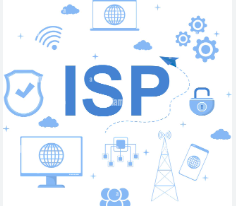ISPs in Saudi Arabia: Empowering Connectivity in the Digital Kingdom
Introduction :
In the ever-evolving digital landscape of Saudi Arabia, Internet Service Providers (ISPs) play a crucial role in connecting individuals, businesses, and institutions to the online world. The Kingdom has witnessed a significant growth in the number of ISPs, providing a range of services and contributing to the expansion of internet access across the nation. This blog post explores the landscape of ISPs in Saudi Arabia, highlighting key players, services offered, regulatory framework, and the future of internet connectivity.

- ISP Market Overview :
The ISP market in Saudi Arabia is highly competitive, with several major players dominating the industry. The primary ISPs include Saudi Telecom Company (STC), Mobily, and Zain. These providers offer a wide array of internet services, including broadband, mobile data, and enterprise solutions. The competition among ISPs has led to improved service quality, increased bandwidth, and competitive pricing, benefiting consumers and businesses alike. - Major ISPs in Saudi Arabia :
a) Saudi Telecom Company (STC): As the largest telecommunications company in Saudi Arabia, STC offers a comprehensive range of internet services. STC’s services include fiber-optic broadband, mobile data packages, and enterprise solutions. The company has made significant investments in expanding its fiber-optic network, providing high-speed connectivity to homes and businesses across the Kingdom.
b) Mobily: Known formally as Etihad Etisalat, Mobily is the second-largest ISP in Saudi Arabia. Mobily offers a variety of broadband plans, mobile data packages, and value-added services. The company has focused on enhancing customer experience and has introduced innovative offers such as unlimited data plans and affordable prepaid packages, catering to diverse customer needs.
c) Zain: Zain is a leading telecommunications company in Saudi Arabia, providing internet services, mobile data, and enterprise solutions. Zain has invested in expanding its 4G and 5G networks, offering high-speed connectivity to its customers. The company has also introduced competitive packages, including unlimited data plans and flexible payment options.
- Regulations and Licensing :
The Communications and Information Technology Commission (CITC) is the regulatory body overseeing ISPs in Saudi Arabia. The CITC ensures fair competition, consumer protection, and adherence to regulatory standards. ISPs are required to obtain licenses from the CITC to operate in the Kingdom, ensuring compliance with quality standards and cybersecurity measures. This regulatory framework promotes healthy competition, spurring innovation and improving service quality. - Internet Connectivity and Infrastructure :
ISPs in Saudi Arabia have made substantial investments in expanding the internet infrastructure to meet the growing demand for connectivity. The Kingdom has an extensive fiber-optic network that spans thousands of kilometers, connecting major cities and towns. This infrastructure expansion has significantly improved internet speeds and reliability.
Moreover, the government has launched initiatives to bridge the digital divide and enhance connectivity in underserved regions. These initiatives, such as the National Transformation Program and Vision 2030, aim to provide broadband connectivity to rural areas and remote communities, ensuring equal access to digital opportunities for all citizens.
- Future of ISPs in Saudi Arabia :
The future of ISPs in Saudi Arabia is promising, with a focus on technological advancements and innovation. The deployment of 5G networks is set to revolutionize internet connectivity, enabling faster speeds, lower latency, and enhanced network capacity. This will open up new possibilities for emerging technologies like the Internet of Things (IoT), smart cities, and autonomous vehicles.
Furthermore, ISPs are expected to continue investing in fiber-optic infrastructure, expanding coverage and improving internet speeds. The deployment of fiber-to-the-home (FTTH) connections will enable ultra-fast broadband access, supporting bandwidth-intensive applications and services.
Conclusion :
Internet Service Providers in Saudi Arabia have played a pivotal role in connecting the nation to the digital world. The competitive market, with major players like STC, Mobily, and Zain, has led to improved service quality, expanded coverage, and affordable internet packages. The regulatory framework ensures fair competition and consumer protection, while ongoing investments in infrastructure and technology promise a future of enhanced connectivity.
As Saudi Arabia continues its digital transformation journey, ISPs will continue to evolve, providing innovative solutions and paving the way for a connected and digitally empowered society. With advancements like 5G and fiber-optic expansion, the Kingdom is poised to harness the full potential of the internet, driving economic growth, fostering innovation, and improving the quality of life for its citizens.
